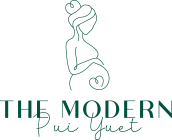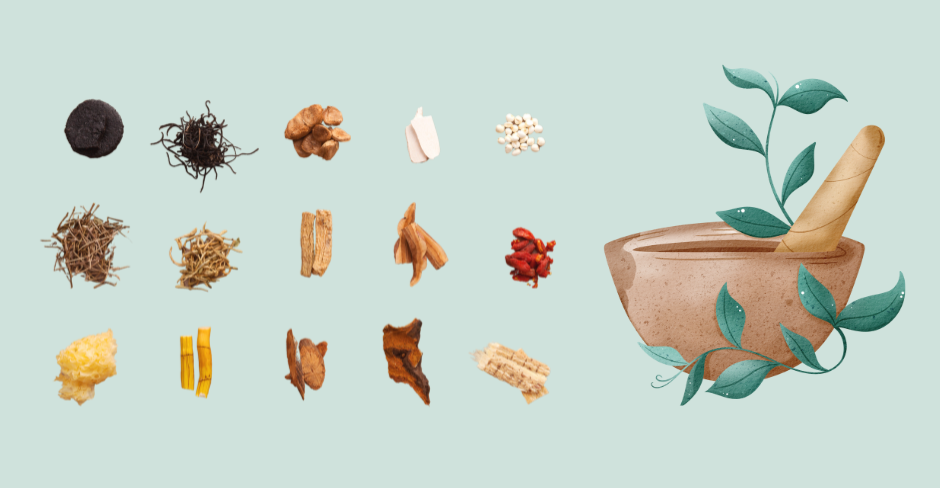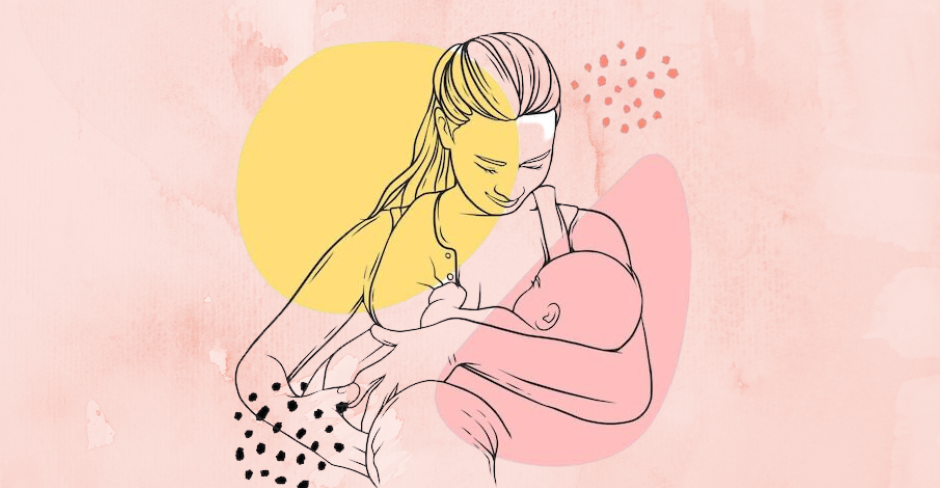

6 Ways You Are Sabotaging Your Postpartum Recovery
22nd Sep 2022
7 mins read
Giving birth and having a baby is a massive emotional and physical transition. Remember to go easy on yourself and don’t try to “do it all”.
What you see on social media isn’t always reality, remember that. Those happy images of glowing new mamas and ‘just-born’ babies you see on Facebook or Instagram make childbirth seem like a walk in the park, like it’s no big deal at all. Giving birth is a life altering event, and so many of us have unrealistic expectations about how fast we should and can get back to “normal”. When you have a fussy and hungry newborn in your arms and birth injuries to deal with at the same time, you will have to adjust your recovery timeline and go very easy on yourself.
Please respect the fact that you are going through a massive life change and an even bigger recovery. If you want to get back on your feet and feel better faster, here are 6 things to watch out for.
1. Trying to do it all
Booking a newborn photoshoot, hosting family and friends who want to meet the baby (worrying about the cleaning before they arrive), it is so common to overdo it in those first few weeks, rest is KEY. For the first few days post-birth, spend as much time as possible in the comfort of your bed, skin-to-skin with the baby, especially if you’re trying to get the hang of breastfeeding and keeping up with good supply. Midwives often recommend a full week of bed rest, but it is completely understandable that a week isn’t always possible for most women – especially if you have other children. Try your best for a few days, if you can. Staying horizontal and not walking around too much whilst keeping pressure off your pelvic floor will help with healing and minimize postpartum bleeding.
Set boundaries for yourself and others. If you’re a bit OCD and mess drives you crazy, ask someone else to help with the household tasks. Or set a timer and clean for 10 minutes, but no more! When and if family members come to visit, give them a specific window for when they can come and ask them to bring their own food and refreshments, or any supplies you may need. (Hints for your visitors: pack of pads, nipple cream, wipes, fancy coffee or tea you’ve been craving, or healthy snacks for a ravenously hungry nursing mama may be way more useful and appreciated than an overload of cute baby outfits.)
Visitors will often want to pass the baby around also. Whilst its nice to have your hands free for a bit, the fights over who gets to hold the baby make it especially hard for you to learn your new baby’s hunger cues. It can sometimes take 3-5 days (or even more!) for your milk to come in, which means some of your first guests may arrive while you’re still trying to get into a good rhythm. If you’re worried about your baby’s weight, minimize the amount of time the baby spends in others’ laps. (Sorry Grandpa and Grandma!)
Make sure you ask everyone to wash their hands. Newborns are super vulnerable to germs, as their immune systems are still forming.
2. Ignoring red flags (both physical and mental!)
Keep a close eye on how you’re feeling overall and identify those red flags early. If your pain is no longer being controlled by different medications and painkillers, if you begin seeing discharge from your stitches or suddenly experience heavy bleeding that won’t stop or getting worse, call your doctor ASAP.
Beyond the various physical symptoms, it’s very important to monitor your mood. If you can’t bond or feel that connection with your baby, or if you aren’t sleeping at night – not because of your newborn, but because you are feeling anxious and it’s keeping you awake – you need to seek help early. This is crucial if you’re having suicidal thoughts or thinking about harming your baby. Often experts mention that the number one concern they see in new mothers are mood issues that aren’t being addressed.
3. Forgetting to prioritize yourself AND self-care
You possibly read that title and rolled your eyes. Who in the world has time for self-care at this stage of motherhood? Yes, it’s difficult – but try to take at least half an hour of time to yourself every day, even if it’s for going to the bathroom alone or taking a shower in peace. Ask your partner or family member to take the baby for that solid chunk of time, so you’re not sitting in the bath or standing in the shower unable to fully relax. If you had a vaginal birth, use this time to take an Epsom salt bath in lukewarm water for 20 minutes, this will help promote healing. Find a quiet place to relax and do things for your mental health. Remember, it’s not selfish – it’s self-care that may save your sanity and aid physical recovery as well.
4. Eating poorly
Whilst you may be very tempted to grab anything carby and ‘easy’ that is within reach and with one hand, try your absolute hardest to keep healthy foods stocked. The first 6 weeks are about survival, it’s not about losing the baby weight or looking your best. Eating well with help manage your overall energy levels and get rid of any constipation. All of us are a bit constipated after giving birth. When you’re in labour or had a C-section surgery, your digestion slows down, and constipation can cause painful bowel movements, or cause hemorrhoids. Eat loads of veggies, fibrous ones! Consider taking flax supplements and drink loads of water. If you’re breastfeeding, try to eat full-fat foods to satiate your hunger.
When you’re super tired, your first instinct may be to reach for a cup of coffee, however it is not recommended to have more than one cup a day. Coffee will dehydrate you, and small amounts of it end up in your breastmilk, which can ultimately cause even more sleep deprivation. Instead, keep your fluids up with lots of water intake or lactation teas or coconut water for additional electrolytes.
5. Doing too much strenuous exercise too soon (and the wrong types)
Until your 6-week check-up postpartum, you shouldn’t be doing any serious or strenuous exercise. It’s a time for rest and repair! Once your healthcare provider gives you the green light, don’t go out and join a hardcore HIIT bootcamp straightaway. When you’ve got a six-week-old, you’re unlikely to be ready for squats and planks like the mother of a six-month old. One of the biggest mistakes women make is returning to exercise that is too challenging. Even if you were super-fit and in incredible shape before (or during) pregnancy, you need to understand that it won’t feel quite the same afterwards. Approach your exercise like you’re recovering from a serious injury (which you are!) and ease into it slowly. Please remember that the “no pain, no gain” slogan does not apply to mamas who are in their postpartum healing journey. Skip the crunches and sit-ups for the time being, they are not great postpartum. Avoid heavy lifting or straining as well for those first few months. Activities like spinning can be a great postpartum workout for women who are having trouble walking but be wary of leaning over and putting pressure on a C-section scar.
Of course, it isn’t great to stay completely stagnant either. You can start getting mildly ‘active’ in a way that isn’t painful. Start off with walking, then add in some hills and gauge how you feel better going on to the next level. If you’re feeling the need to stretch, you can look into gentle methods such as guided parent-and-baby carrier classes or simple Pilates designed for women who have just given birth.
6. Skipping physiotherapy for your pelvis
When you’ve reached the six-week mark, most of us, whether we’ve had a vaginal natural birth, or a C-section will benefit greatly from being assessed by a specialized pelvic floor physiotherapist. Kindly note that this is different from your six-week checkup with your primary care provider. While a pelvic floor physio is an added cost, it is so worth it. The physio will assess your core and back muscles, check on the healing of any scar tissue, and they’ll examine your pelvic floor, the sling of muscles holding up the pelvic organs. Be warned, this involves an internal vaginal exam! Pelvic physios can also help with healing diastasis recti (more commonly known as ab-separation), which is the thinning of the tendons in between your abs – making it seem or look as if they’re separating, caused by intra-abdominal pressure. You are not alone, 100% of women have some form of diastasis, it is completely normal. However, the extent of your diastasis will differ from each person and getting it assessed by a professional is important for proper healing. Most physios will personalize at-home exercises formed around deep core work such as Pilates moves or oblique exercises as well as pelvic floor cues (hello Kegels!).
A trick to isolate your pelvic floor muscles is by pretending you are scooping up a marble with your vagina and then pulling the marble up towards your bellybutton. Best not to tense up your whole body, it’s a more subtle movement than a Kegel, focusing only on the vaginal muscles. To help get the muscle-memory back, aim to do 15 Kegels per day, not more as this may do more harm than good whilst you’re healing.
C-section mamas should also get assessed. The biggest myth of C-sections is that your pelvic floor is fine as you didn’t deliver naturally. This is so far from the truth! You were still pregnant for nine months; your core is super weak and scar tissue creates a whole lot of issues in your core. C-sections often cause women to experience horrific back pain stemming from a weak core.
The fourth trimester is testing and asks a lot of your body. You’re always reaching down to get your newborn from bassinet, nursing in weird-awkward positions, babywearing and more! This puts a whole lot of strain on your back and abdominals. The lack of sleep can make it even harder to recover.
Remember, TAKE IT EASY! You don’t have to be superwoman, yes, the mom-guilt is real, but you do need to try and look after yourself (both mentally and physically) as much as you’re looking after your newborn. Remember to feed your body and soul well – not just your baby’s and cuddle up with your lil’ one as much as you can. All this peace, quiet and restful time will pay off in the long run, making you a happy parent who’s able to fully enjoy motherhood and your baby.


Written by





